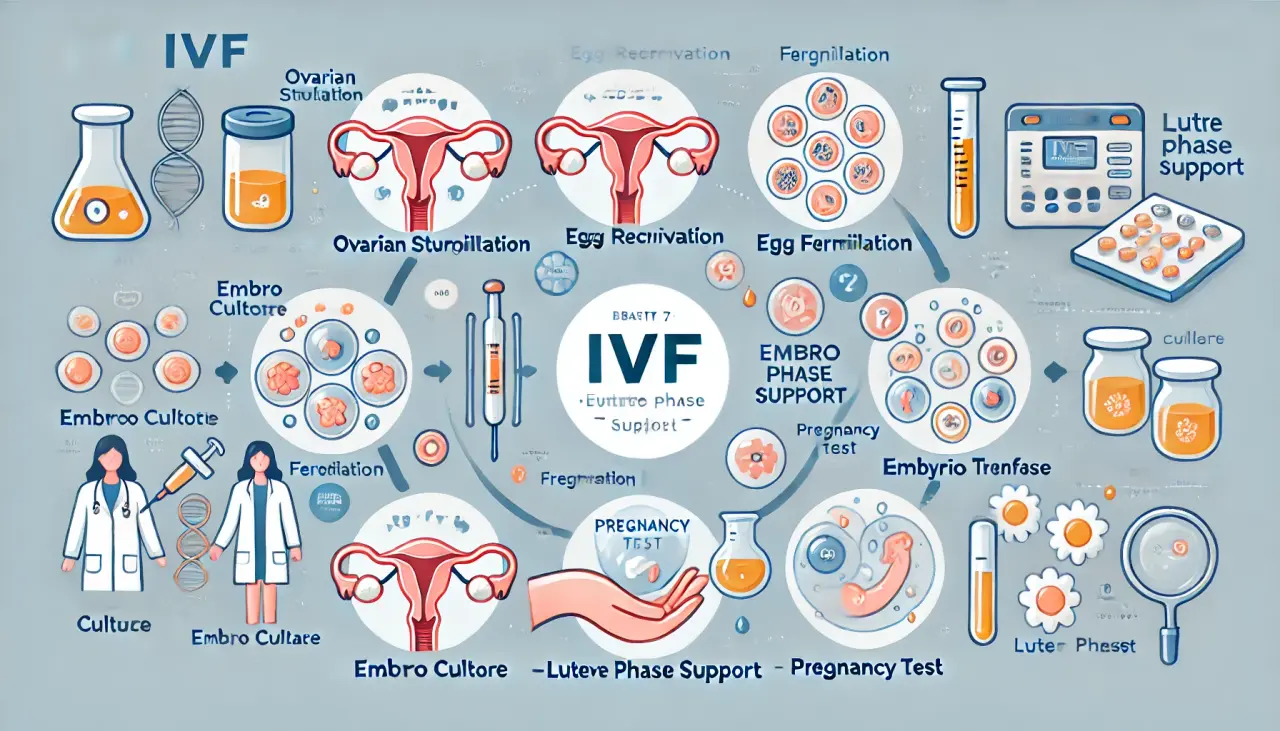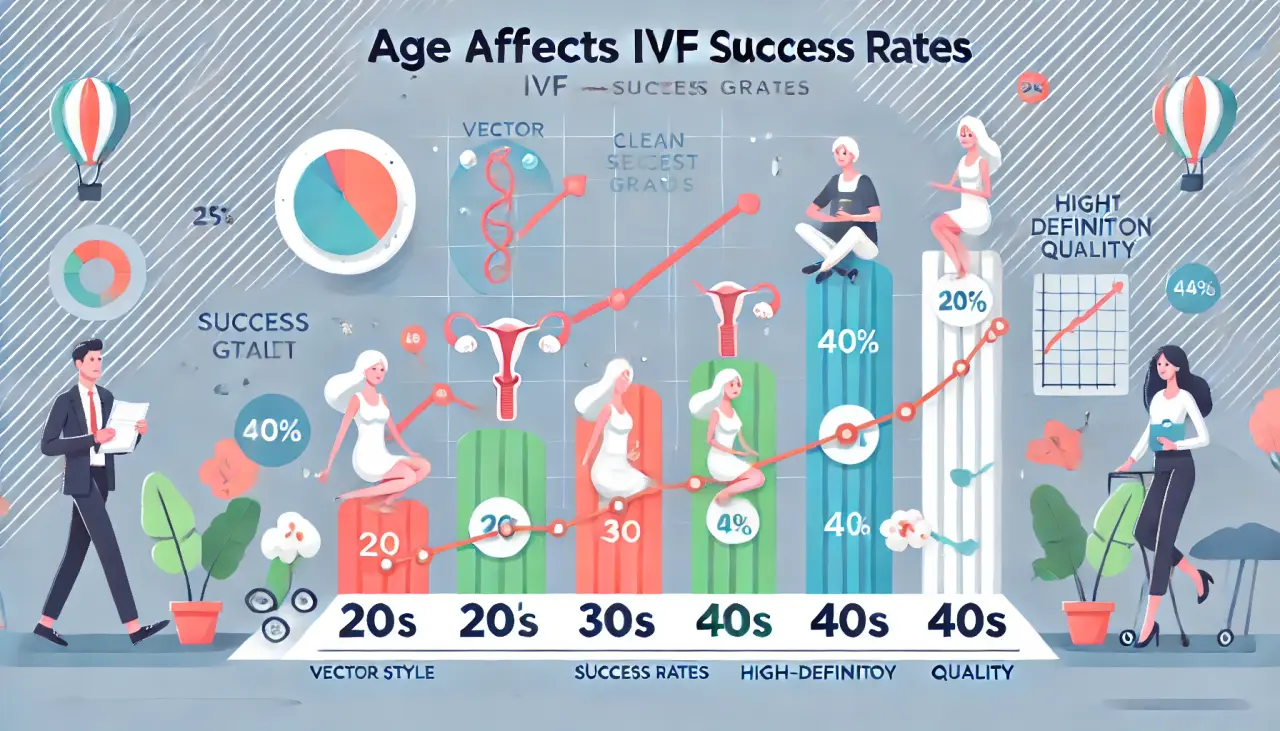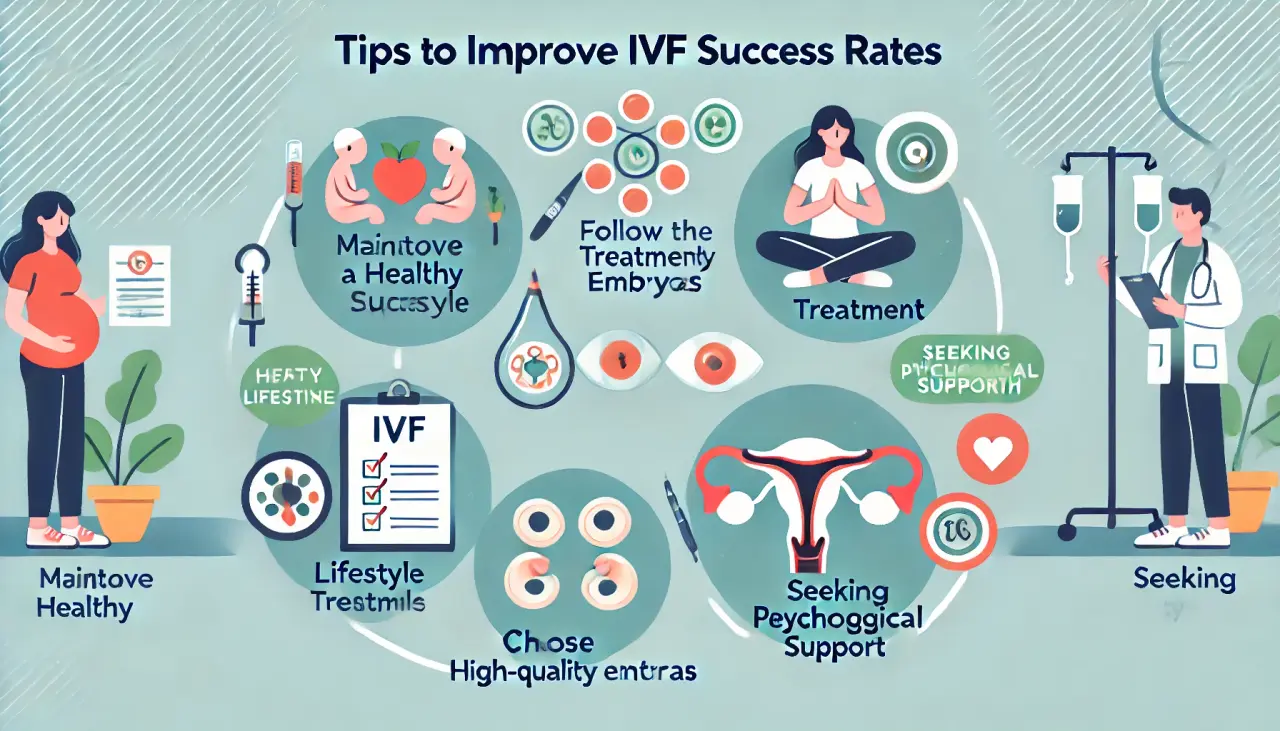
What Factors Influence IVF Success Rates? Tips to Improve Your IVF Success
In vitro fertilization (IVF), or assisted reproductive technology (ART), is a sophisticated medical procedure with various stages, each of which can significantly impact IVF success rates. This article explores the key factors that affect IVF success and offers practical tips on improving the chances of a successful pregnancy.
1. The IVF Process
Here is the basic IVF process:
- Ovarian Stimulation (Stimulating the Ovaries)
- Egg Retrieval (Collection)
- Fertilization
- Embryo Culture (Development)
- Embryo Screening
- Embryo Transfer
- Luteal Phase Support (Hormonal Support)
- Pregnancy Test (Detection)
Each of these stages requires precise medical procedures and careful management to maximize IVF success.

2. Factors That Affect IVF Success Rates
2.1 Age
Age remains one of the most influential factors in IVF success rates. Younger women typically have better ovarian function, higher egg quality, and more viable eggs, leading to better outcomes. As a woman ages, ovarian function naturally declines, reducing egg quality and quantity, which negatively impacts IVF success.
2.2 Physical Health
A woman’s overall physical health plays a crucial role in determining IVF success. Factors such as the health of the uterus, hormonal balance, and the presence of chronic conditions can all influence the likelihood of embryo implantation and pregnancy.
2.3 IVF Clinic Quality
The quality of the IVF clinic and the medical team also significantly affect IVF success. Clinics with cutting-edge lab technology, skilled professionals, and years of experience tend to have higher IVF success rates. The success of the procedure is often tied to the clinic’s reputation and capabilities.
2.4 Embryo Quality
High-quality embryos have a much higher chance of developing and implanting successfully in the uterus. The quality of the embryo is one of the most crucial factors in determining IVF success and greatly impacts the chances of a successful pregnancy.
2.5 Lifestyle and Mental Health
Your lifestyle choices—such as diet, exercise, sleep patterns—and mental health can affect IVF success rates. Maintaining a healthy lifestyle and managing stress can improve your overall health, egg quality, and IVF outcomes.
3. IVF Success Rate
The IVF success rate generally ranges from 40% to 70%, depending on various factors such as age, physical health, and the clinic’s expertise. These rates vary for different patients and can change depending on the specific circumstances surrounding each case.

4. How to Improve IVF Success Rates
4.1 Improve Your Lifestyle
Adopting a healthy diet, exercising regularly, sleeping well, and managing stress are essential for improving your IVF success rates. A healthy lifestyle improves overall health and egg quality, which can enhance your chances of IVF success.
4.2 Follow the Treatment Plan
Strictly adhering to the doctor’s instructions during the IVF process is critical to improving your IVF success. Ensuring that every step, from ovarian stimulation to embryo transfer, is followed meticulously can positively impact the outcome.
4.3 Choose High-Quality Embryos
During the embryo screening process, selecting high-quality embryos significantly improves the chances of successful implantation and pregnancy. Choosing the best embryos available is essential for boosting IVF success.
4.4 Undergo Pre-Treatment Assessments
Before starting IVF, it’s important to undergo a comprehensive health assessment. This helps doctors create a personalized treatment plan tailored to your needs, enhancing the chances of IVF success.
4.5 Seek Professional Psychological Support
The emotional strain of IVF can affect your mental and physical health. Seeking psychological support can help reduce anxiety and stress, improving your mental well-being and ultimately contributing to better IVF success rates.
Conclusion
The success of IVF depends on several factors, including age, health, embryo quality, lifestyle, and mental health. By addressing these elements and following the treatment plan, you can improve your chances of a successful IVF outcome. Understanding what influences IVF success rates and how to optimize them can make all the difference in your fertility journey.